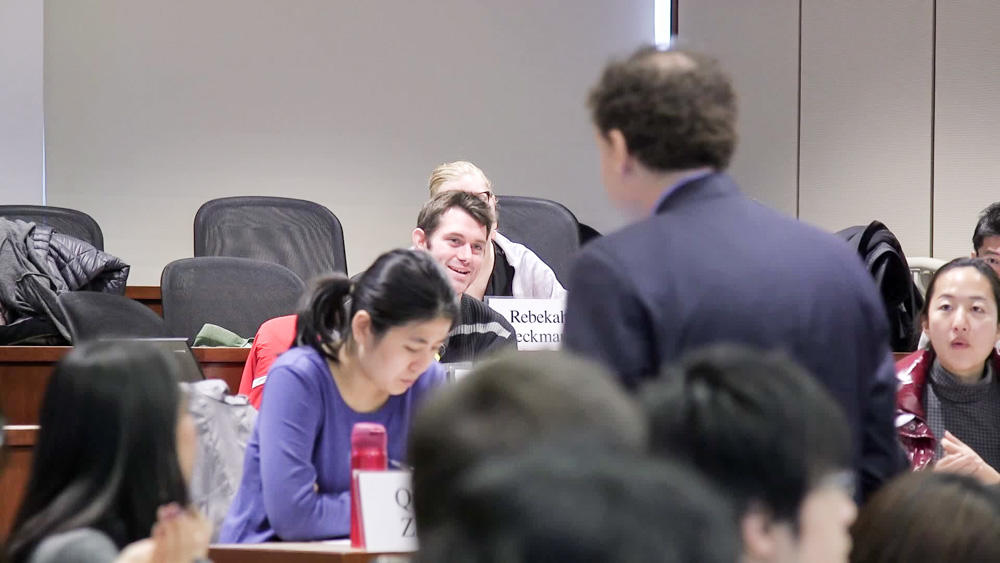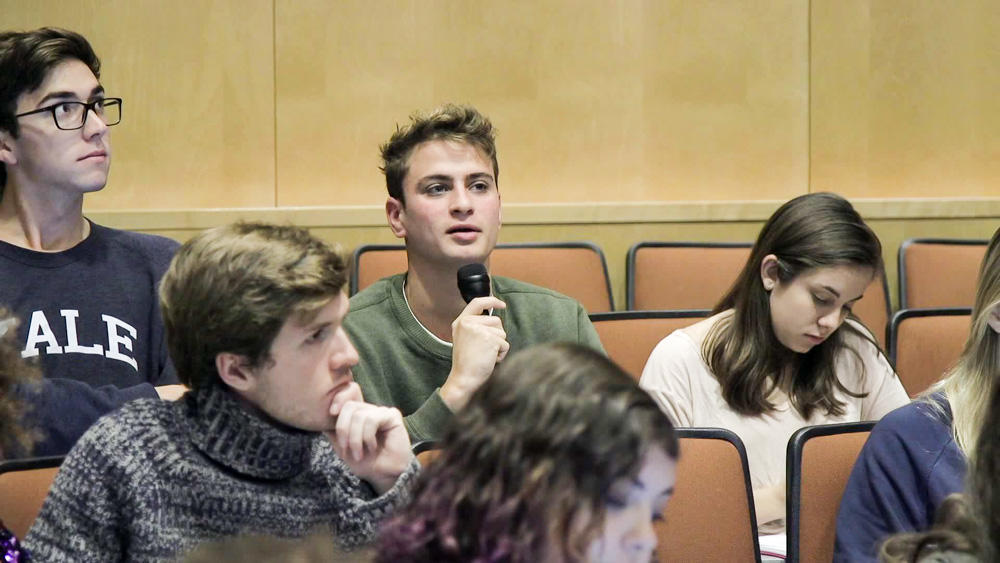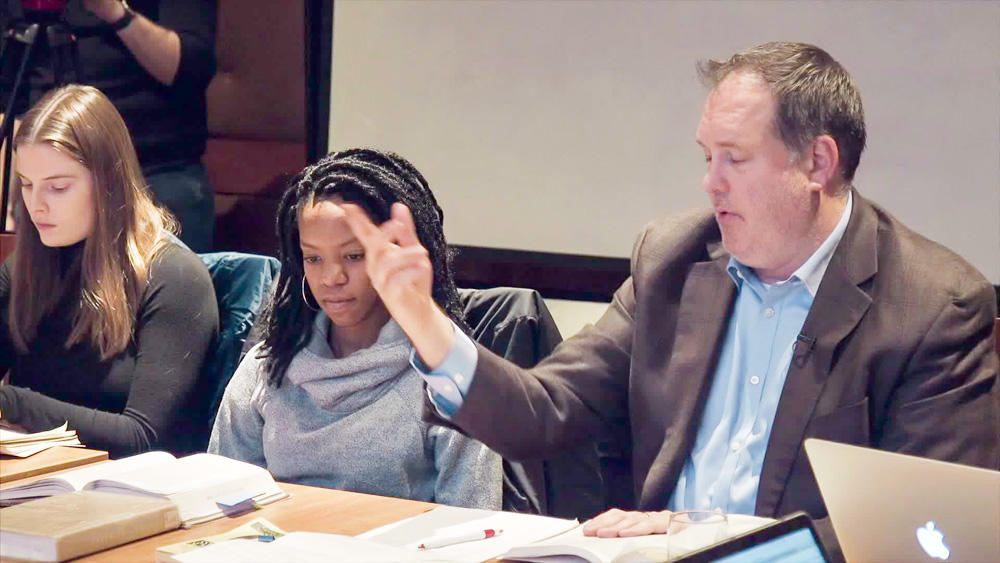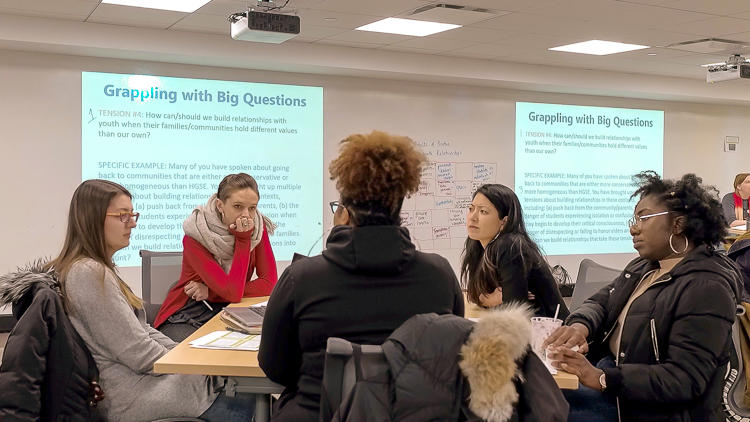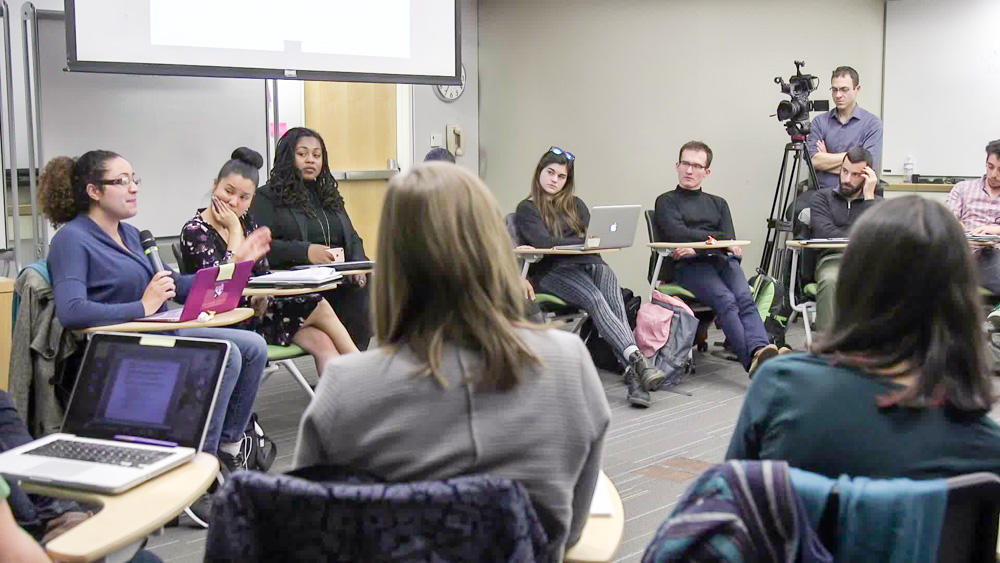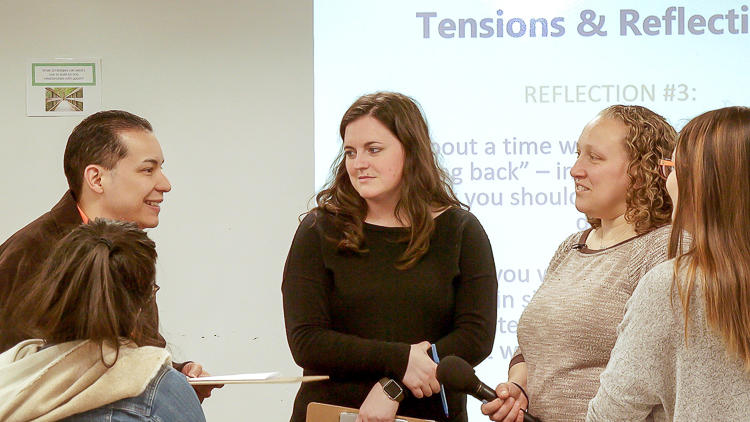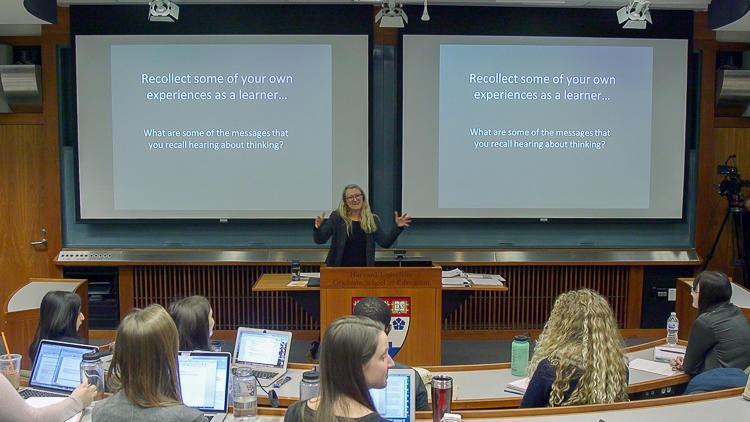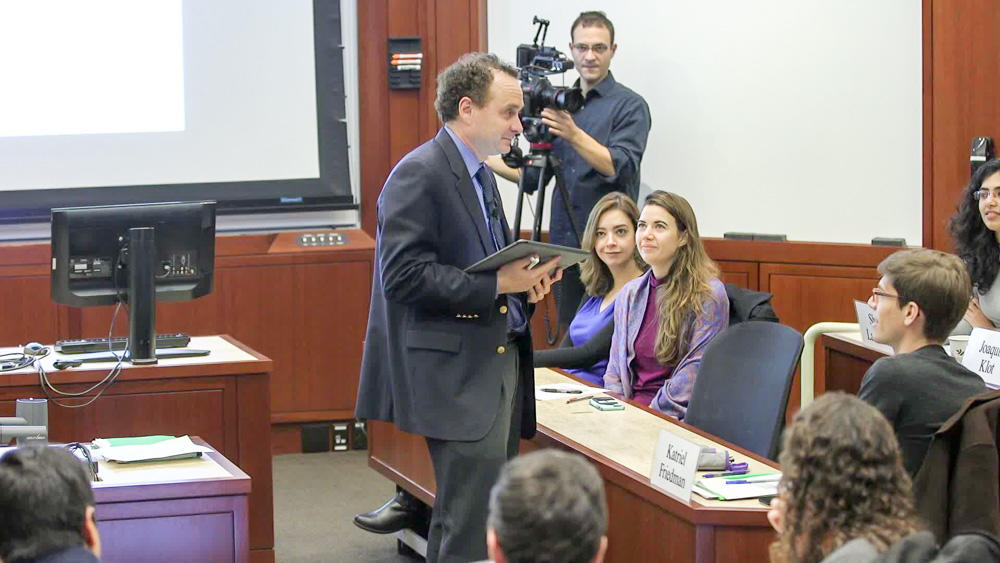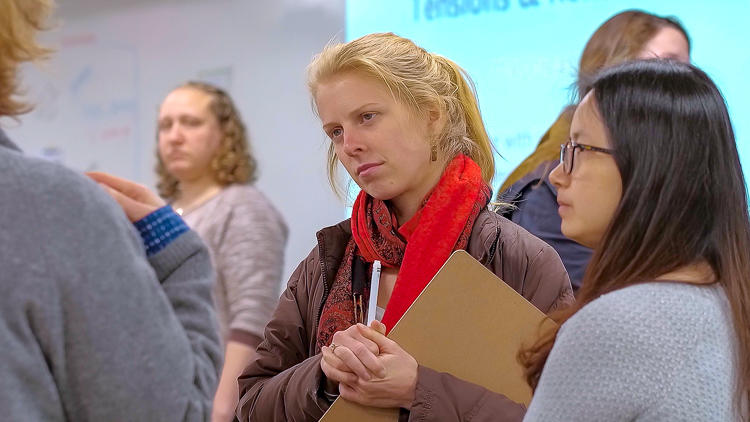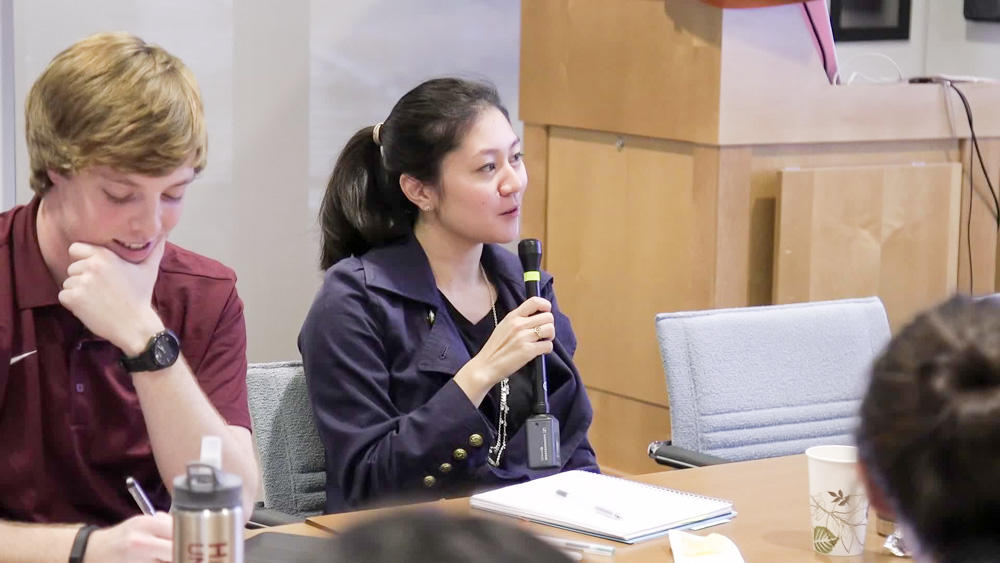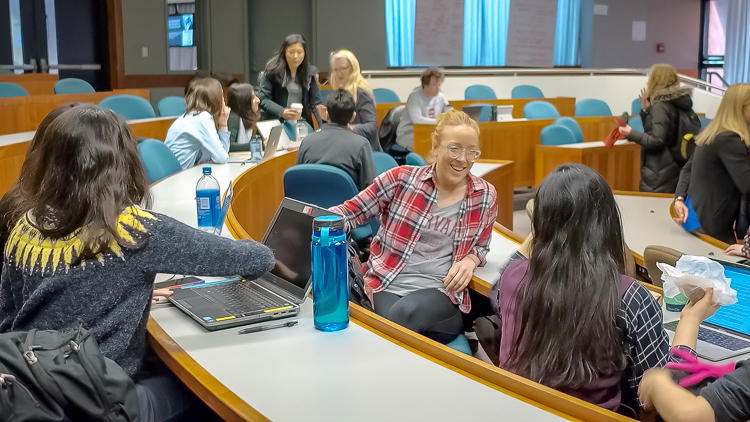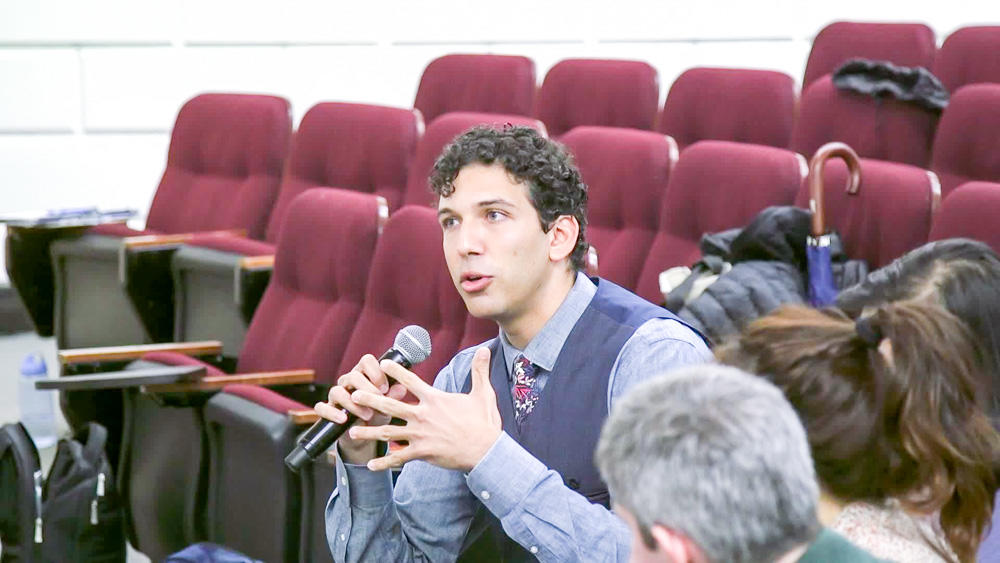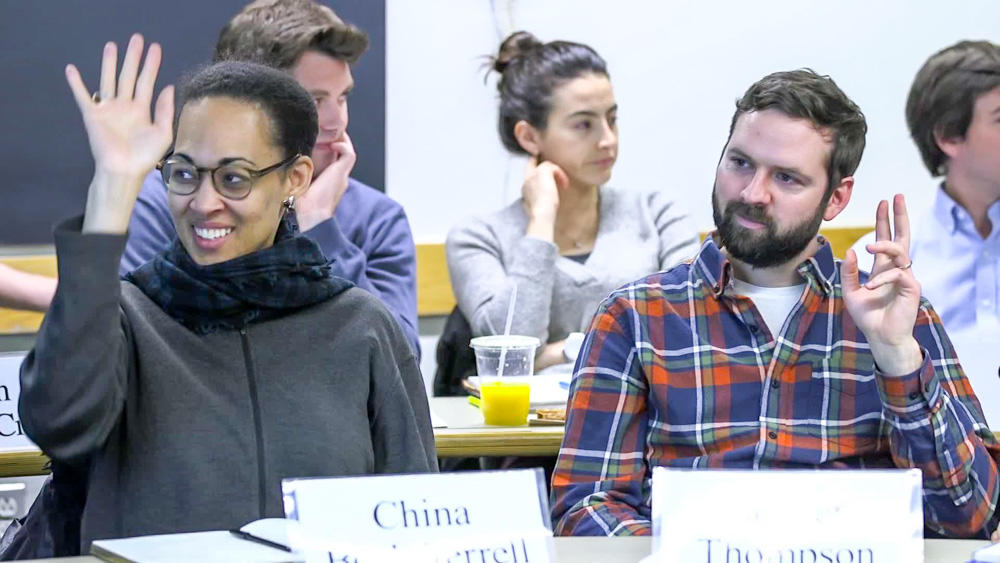For students to feel empowered to share ideas freely, instructors must work to foster a classroom culture that is both caring and challenging, safe and supportive. Such a culture seldom materializes by happenstance, and building it must be a sustained effort throughout the semester. With community in mind, effective instructors consider how to set up the physical environment, how to encourage intellectual risk-taking, and how to model appropriate discussion behaviors, such as active listening and responding to one another respectfully.
How might we get to know our students better so we understand their prior experiences and content knowledge? How do we set a tone in which students are unafraid to share ideas, even if they may not be “right”? What steps can we take so that in-class discussion flows more like a conversation wherein students respond to each other’s ideas rather than simply looking to their professor for affirmation? In these videos, featured professors describe actions they take to build community in their discussion- and lecture-based classrooms.


